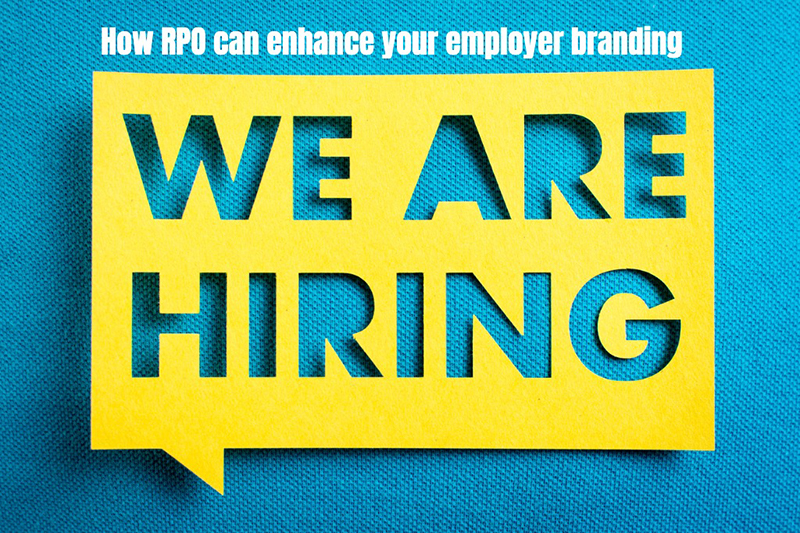
Let's face it; we all want to work or create a workplace that is amazingly comfortable for us to flourish and effectively produce the best results possible.
I'm guessing we can also agree that being part of a highly engaged business culture with ethical business practices is essential.
Maybe we want to take on a role that follows structured policies and procedures for both the employee and employer. Or perhaps just longer days off to relax on the beach. I know, sorry, this isn't about me.
However, as an organization, though, it will boil down to your employer branding efforts to stand out amongst the competition and help candidates make a decision.
With that said, branding is a vital part of a company's reputation. One way to enhance your employer branding is with a compelling story about the company. The more engaging it is, the better.
What the heck is employer branding?
Before we specifically discuss the importance of employer branding, it's necessary to differentiate two specific types of branding in business that are often overlapping and can align with each other:
Company branding. This refers to the broader brand of the company that customers associate. It is the more traditional definition of brand marketers' focus.
Employment brand (or employer branding, as some call it). It is the perception of an organization by employees, candidates, and prospective employers.
Why is employer branding so important?
Kate Skerrett of Glassdoor recently talked to us about how their site helps organizations tell a unique company story. Their visitors "want to know things like culture, interview process, and how they view the CEO."
Candidates want to know about their prospective employers. Employers want to control the narrative of their employer brand.
Research shows more organizations are actively working on their employer branding. In 2016 a Global Recruiting Trends report by LinkedIn was published with data points for small to medium businesses (SMBs) supporting this. Check this out:
- 72% of recruiting leaders worldwide agree that employer branding has a significant impact on hiring.
- SMBs plan to expand their employer branding through three channels: Website (69%), online professional networks (61%), and social media (47%).
- 59% of recruiting leaders worldwide are investing more in employer branding.
- 55% of recruiting leaders worldwide have a PROACTIVE employer branding strategy.
- 39% of respondents say employer branding will be a long-lasting trend to focus into the future.
With the challenges of a highly competitive hiring market and widely spread skills shortage, employer branding becomes even more critical where niche skill sets are pressing demands.
RPO recognizes the above trends and applies them to the employer branding strategy.
For the RPOA audience, we’ll dive more into how an RPO helps with employer branding and will also discuss that it is more than just a hot "buzz word."
Will RPO help employer branding visibility?
As industry consultants, RPO provides many benefits. We can be confident that an RPO will provide accurate data, consultative strategy approach, and visible results that are tangible and actionable.
Even more, an RPO will be transparent with the need to maintain a genuine online presence of the organization. Utilizing data and telling a story can be seen and felt.
Since recruiting is a global industry, companies all around the world are continually developing their brands to remain competitive and obtain the best talent available in the market.
Per LinkedIns' Talent Blog, an employer brand should be on the top of their delivery priority list, second only to a company's primary brand. Why? Because how you are viewed, "lives and breathes in the minds and hearts of your former, current, and future employees."
Undoubtedly, organizational appearance has immediate and lasting effects on its overall brand and can be seen as the place to be, or worse, not to be.
What makes RPO a strategic partner in elevating employer brands?
"RPOs represent a more holistic and forward-looking approach to recruiting than most people realize. It is much more than filling roles for your organization. RPO focus is on setting the company up for success long-term," says Patty Silbert, President of Pittsburgh-based RPO company, Newton Talent.
An RPO partner will "design the help needed only with a thorough understanding of your organization: your consumer brand, your products or services, your market customers, and competitors for talent.
Without a clear employer brand identity, your recruiters must spend extra time explaining who you are as an organization and why candidates would want to work there. So, it makes perfect sense for your RPO to be involved."
RPO’s measure your employer brand effectiveness and closely relate it to your Employer Value Proposition (EVP), “a statement that encompasses your organization’s mission, values, and culture, and gives employees a powerful reason to work for you”. RPOs can and will relay the desired message to engage your talent audiences.
As a corporate extension, an RPO can take on your recruitment challenges of improving your employer brand and EVP syncs in with the long-term approach.
Does RPO help with an employer value proposition AND employer branding?
RPO has come a long way in a relatively short time. Newer generations have made improvements by embracing added value like company branding and streamlined the initial approach.
One approach is the addition of an EVP that offers a mutual understanding made by both employer and employee. Specifically, the value employees expect to obtain from the organization, and equally, the value they are expected to contribute.
RPO relates to the reputation and image of the company through messaging, marketing, and advertising. Also, the presence it creates serves a purpose to attract outside public candidates that may be active or passive in their search.
A solid example was provided to us by Skerrett. "An RPO engaged Glassdoor to understand the current sentiment. The RPO goal was to show their client that the existing culture was lacking and leading to both a retention and candidate attraction issue."
In short, how you bring EVP to life via the employer brand is vital to turn your employer brand reputation into an authentic experience.
Why is branding with an RPO vital for talent attraction and retention?
According to Powerhouse Talent, "An EVP is the “why” around an organization – It's the attributes of an employment experience that attracts and helps to retain top talent. It represents what employees value most, how a company separates itself from its competitors, and the company's promise to its people."
An RPO can add valuable social media channels because they serve as digital extensions of your organization's website.
An interesting quote we appreciate comes from Estela Vasquez Perez on The Undercover Recruiter website. "Employer branding is the tactical approach to positively influence with a well-told story of the truth or designing amazing employee and candidate experiences."
Understanding and utilizing the communities your candidates and employees are navigating, and taking a focused approach to sharing strategy with them is integral to successful recruitment and retention.
Reflecting back on everything, not only does an employer brand establish your positioning in the candidate market but also keeps existing employees engage with your storytelling, which is vital to attracting and retaining talent.














